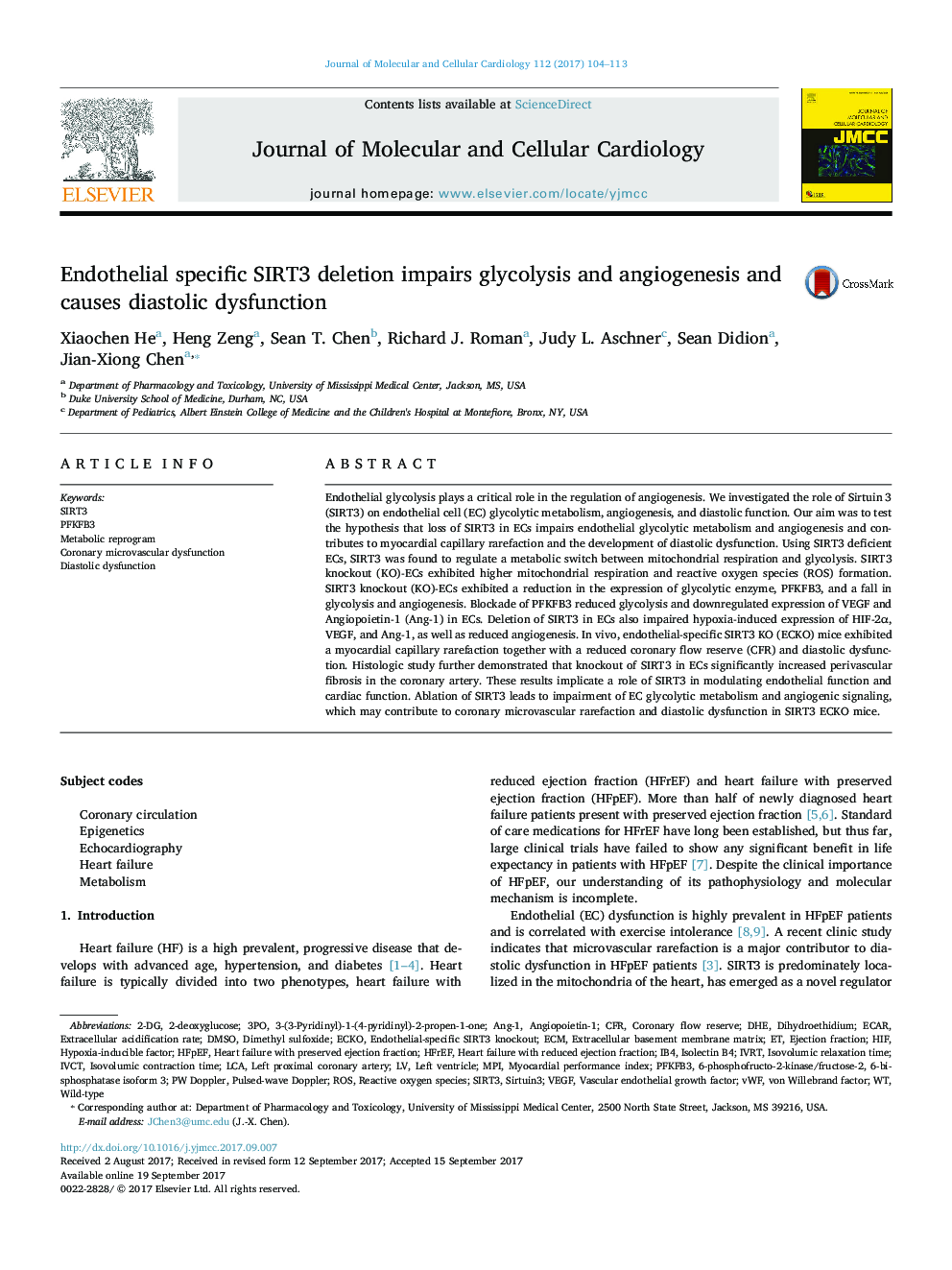| کد مقاله | کد نشریه | سال انتشار | مقاله انگلیسی | نسخه تمام متن |
|---|---|---|---|---|
| 5533440 | 1550394 | 2017 | 10 صفحه PDF | دانلود رایگان |

- SIRT3 deletion shifts ECs from glycolytic metabolism to mitochondrial respiration.
- SIRT3 loss results in EC dysfunction via impaired glycolysis and PFKFB3 signaling.
- Mice lacking EC SIRT3 develop microvascular dysfunction and diastolic dysfunction.
Endothelial glycolysis plays a critical role in the regulation of angiogenesis. We investigated the role of Sirtuin 3 (SIRT3) on endothelial cell (EC) glycolytic metabolism, angiogenesis, and diastolic function. Our aim was to test the hypothesis that loss of SIRT3 in ECs impairs endothelial glycolytic metabolism and angiogenesis and contributes to myocardial capillary rarefaction and the development of diastolic dysfunction. Using SIRT3 deficient ECs, SIRT3 was found to regulate a metabolic switch between mitochondrial respiration and glycolysis. SIRT3 knockout (KO)-ECs exhibited higher mitochondrial respiration and reactive oxygen species (ROS) formation. SIRT3 knockout (KO)-ECs exhibited a reduction in the expression of glycolytic enzyme, PFKFB3, and a fall in glycolysis and angiogenesis. Blockade of PFKFB3 reduced glycolysis and downregulated expression of VEGF and Angiopoietin-1 (Ang-1) in ECs. Deletion of SIRT3 in ECs also impaired hypoxia-induced expression of HIF-2α, VEGF, and Ang-1, as well as reduced angiogenesis. In vivo, endothelial-specific SIRT3 KO (ECKO) mice exhibited a myocardial capillary rarefaction together with a reduced coronary flow reserve (CFR) and diastolic dysfunction. Histologic study further demonstrated that knockout of SIRT3 in ECs significantly increased perivascular fibrosis in the coronary artery. These results implicate a role of SIRT3 in modulating endothelial function and cardiac function. Ablation of SIRT3 leads to impairment of EC glycolytic metabolism and angiogenic signaling, which may contribute to coronary microvascular rarefaction and diastolic dysfunction in SIRT3 ECKO mice.
Journal: Journal of Molecular and Cellular Cardiology - Volume 112, November 2017, Pages 104-113